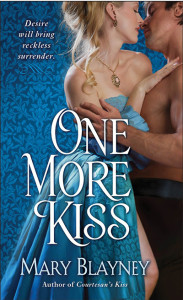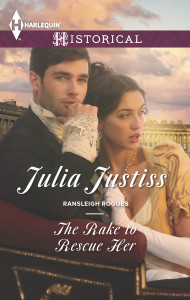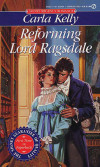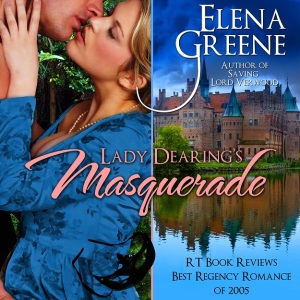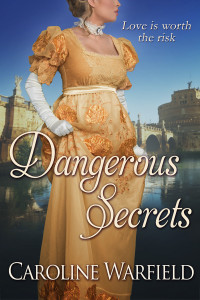 Today we welcome back Caroline Warfield, who’s here to talk about her most recent release Dangerous Secrets and she’s giving away a copy of her first book Dangerous Works (Kindle/US only). The winner will be chosen from those who participate by adding a comment or by other means (see below).
Today we welcome back Caroline Warfield, who’s here to talk about her most recent release Dangerous Secrets and she’s giving away a copy of her first book Dangerous Works (Kindle/US only). The winner will be chosen from those who participate by adding a comment or by other means (see below).
Buy the book:
US Kindle
UK Kindle
Canada Kindle
Euro Kindle
View the Pinterest Storyboard
And now let’s talk to Caroline…
I loved the setting of the book–Rome after the Napoleonic wars. Do you have any stories about your research trip there?
Rome to me meant Cicero and Caesar growing up. I took Latin for four years in high school. I remember winning some sort of medal in a competition. Rome also meant church and on my first trip there I expected churches and ruins. I discovered a complex city with layers of history. (In some cases literally layers such as the excavations below San Clemente that cover 1500 years of history)
It was the Keats/Shelley museum that made me think perhaps I could set a English regency story in an Italian city. I sat by the Spanish Steps and thought, “What if I put an impoverished hero here?” The art of the Grand Tour made it clear that the upper classes went to Rome in droves in the early nineteenth century. I knew I was on to something. One of the challenges of writing to the Regency Period is keeping it fresh. I think Rome helped me do that. Traveling there twice enabled me to envision it.
Any advice on writing children as secondary characters? (I think you did it rather well!)
Thank you! I rather like Isabella, Nora’s niece, myself. I love bright verbal children. I don’t know that I understand the process of creating them on the page, however. I suspect one tool in the writer’s collection has to be a good ear. If you listen carefully to how people talk and act it is easier to breathe life into your characters. That is particularly true with children. If you sit and talk with them you get a feel for how their minds work. I like the scenes where Isabella holds court after the kidnapping. She loves the spotlight.
Did you find writing a book that’s part of a series but also a standalone difficult? How do you keep track of everything?
I don’t think the standalone part is difficult. Each individual has a unique story. The challenge, as you know, is managing the characters across several books. I began with a clear back-story for the characters, but I have not done a good job of tracking them book-to-book. I confess to being a pantser. Planning plot doesn’t come naturally. I’ve had to do some rapid searches through whole manuscripts when a question or two arose. I’m currently indexing them all in preparation for planning a new series. As an added complication, the stories are being published out of chronological order forcing me to be particularly careful. Because they are standalone, I was able to submit some that were finished early even though they were out of order series-wise.
Who would you cast as hero/heroine in the movie version of the book?
I pictured several actors before settling on Ewan McGregor for Jamie. He has the right look and feel for the story. For Nora? That one is tougher. She needs the right combination of vulnerability and spunk. I think I would choose Michelle Williams. She would convey Nora’s longing for a child effectively and still stand up to the forces around her.
What’s the last great book you read?
“Great” is an intimidating word! Lately I’ve been enamored of C.S. Harris’s Regency mysteries. I’m also reading my way through Grace Burrowes’s entire body of work. The sheer volume in a short period of time is stunning, stunning because the quality is so high.
Tell us a bit about your next release.
Dangerous Weakness has been scheduled for a September 2015 release. It takes place in 1818 and tells the story of the Viscount Glenaire. He is the managing brother in Dangerous Works and interfering friend of Dangerous Secrets. He also plays a similar role in a prequel holiday novella I have in process. Cold, aloof, convinced he could fix anything for those he cares about; I knew I needed to do more than muss his hair. This boy needed to get knocked down.
It begins, “If women were as easily managed as the affairs of state—or the recalcitrant Ottoman Empire—Richard Hayden, Marquess of Glenaire, would be a happier man. As it was the creatures made hash of his well-laid plans and bedeviled him on all sides.” The heroine leads him a merry chase that involves London, Constantinople, the Sultan’s Seraglio and some Barbary pirates.
Ooh! And … Carolyn wants to know:
Those of us that love the Regency era read many books set in that world. The author’s greatest challenge is finding ways to tell original stories. What tropes do you like most in a Regency novel? Which do you miss when if they are gone?

